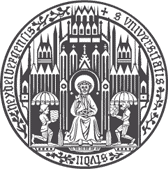
Introduction to Neural Networks and Sequence-To-Sequence Learning
Module Description
| Course | Module Abbreviation | Credit Points |
|---|---|---|
| BA-2010[100%|75%] | CS-CL | 6 LP |
| BA-2010[50%] | BS-CL | 6 LP |
| BA-2010[25%] | BS-AC | 4 LP |
| BA-2010 | AS-CL | 8 LP |
| Master | SS-CL, SS-TAC | 8 LP |
| Lecturer | Michael Staniek |
| Module Type | |
| Language | English |
| First Session | 29.04.2020 |
| Time and Place | Wednesday, 16:15-17:45, INF 327 / SR 3 |
| Commitment Period | tbd. |
Prerequisite for Participation
Assessment
Class attendance, assignments, project
A project at the end will be used for grading and make use of many topics learned during the lectures.
Inhalt
This course covers basic techniques and architectures for machine learning with artificial neural networks with a focus on NLP applications. A deep learning programming framework will be introduced and used for implementing the exercises of the class assignments. We will pursue the following questions:
What are neural networks? What is deep learning? How can we implement and train neural networks? Why are these models so successful?
Which architectures are suitable for which types of problems?
What are the core challenges when processing natural language with neural networks?
The goal of this course is to gain an understanding of the principles and basic architectures of neural networks. By the end of the course, students will be able to implement neural models for their own NLP applications. Grading is based on the credits obtained in the assignments and the project.
Module Overview
Agenda
| Date | Session | Materials |
Literature


